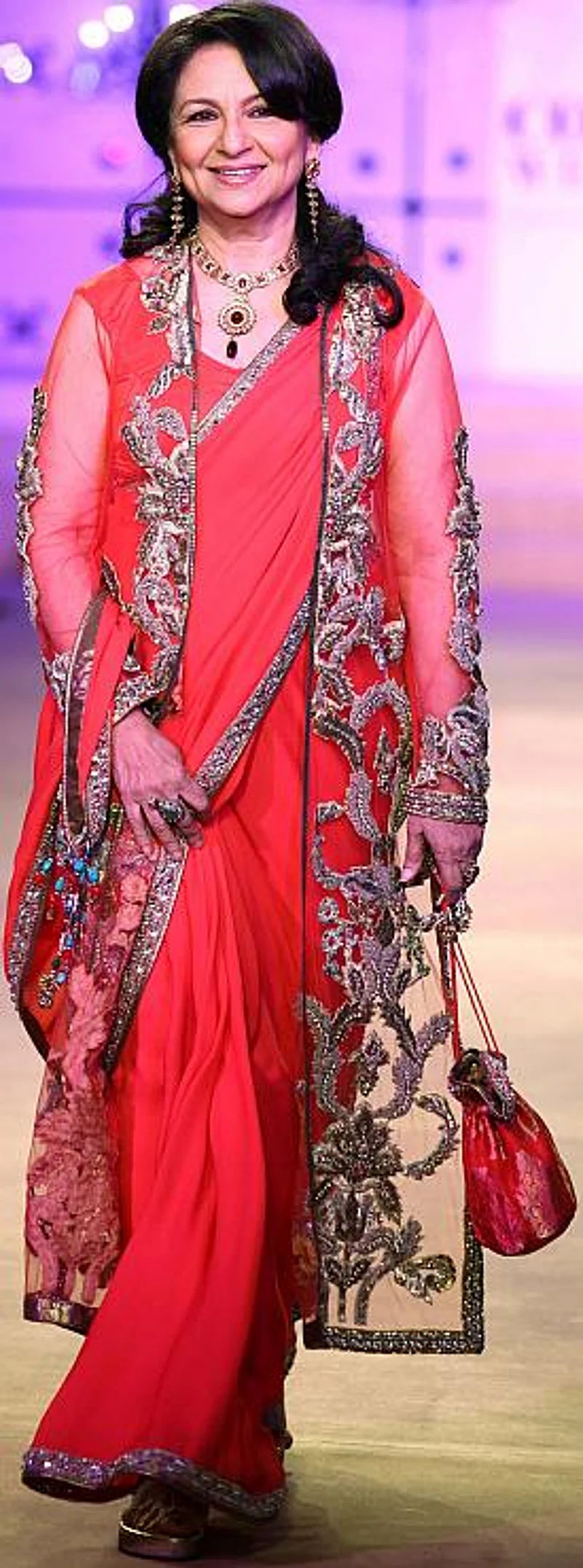
The first 13 years of my life were spent in Bengal and so I grew up then with an unadulterated Bengali influence. We lived in a huge joint family, followed all the rituals and festivals—be it the Vishwakarma Pooja or Rakhi when we made the “manjha” for kites at home. We wore yellow for the Saraswati Pooja. For each occasion we made a different kind of alpana. What added to it all was that I went to a Bengali medium school. The food we had and the music we listened to were also Bengali. I also grew up wearing saris for formal occasions. There was no jeans culture back then. It was after Apur Sansar that I left the school and went to Loretto Convent. It was then that the exposure to the outside world began—the Westernised, English-speaking world. The North Indian, Hindi influence came in when I moved to Bombay for Kashmir Ki Kali. All these influences came into my life gradually.
Advertisement
My home had always been very inclusive. There were no restrictions, we were open to many different cultures. We were exposed to a lot—Western music, violin and piano. We were taught to be discerning. There were so many cousins around, a variety of points of view and arguments galore. Dissent was welcomed, debates were considered healthy. I have imbibed the best, took up and incorporated what I liked the most from every culture. But at the core the Bengali in me stays. I like listening to Rabindra Sangeet. I still have my grandmother’s hand-written recipes. Macher jhol is my comfort food. Earlier it was my mother who made it for me, now whenever I am ill I send distress signal to friends and they send it over for me. There has been a plurality of influences but I love the Bengali language, the poetry, the Dhakai sari.
Advertisement
In the last 20 years the world has changed dramatically. Internet, mobile and the access to travel have made the world a smaller place. World has literally come to one’s doorstep. You can hear so many lingos around you. Some old ways are going away. Sari is disappearing, salwar suits are everywhere. Women are working now, are not home bound. The joint family system, family relations are disappearing, the practice of having lunch and dinner together is disappearing. Everyone wants their own TV and their own space. The intermingling, the community feeling is no longer there. The pressures of the outside world have started playing in a big way inside the family. I learnt and imbibed a lot from my mother and grandmother but kids are leaving home much earlier these days for the hostels, universities; they don’t stay long enough at home to learn the traditions from their parents. Earlier religion was a way of life, a cultural thing. Every mithai, the nimkis, chorchoris, moa were made at home by my grandmother. My mother didn’t make them as much as my grandmom and it's lost on me. Not that I can’t make them but because I don’t like going to the kitchen. This kind of change is inevitable with time. But strong roots at home make one better at coping with the world outside or else one can be rendered vulnerable. The secure base, the calmness helps in dealing with different, conflicting opinions.
As long as my mother was alive I used to visit Kolkata regularly. Now there’s no immediate family there’s no compulsion to visit either. But there are lots of friends there from my early days in films. I do stay in touch with the Bangla art, culture, literature. I read Jai Goswami, have watched recent films like Autograph and Bhooter Bhobishyat which I thought was great. In Kolkata if one wants to eat Bengali food then it has to be ghar ka khaanaa. Or else Oh Calcutta is a favourite place. I also love visiting Belur, Dakshineshwar, love to sit next to the river.
Advertisement
Since Partition there has been an influx of too many people into Kolkata and the infrastructure has not been able to support it. The turnaround came in the 70s when the money, the corporates left Kolkata because of unionism. Only the Marwaris stayed back. The city got the reputation of being a place where no one wanted to work. Fifteen years of Communism and a lack of interest shown by the Centre has meant that the infrastructure is abysmal. There are too many people, too much poverty. The state is under so much debt. How can anyone put it right? It’s a steep challenge, a very layered, complex problem. Also it is said that Bengalis don’t make good businessmen. Instead they are artistic, argumentative and politically inclined. Every other community has overtaken Bengalis, making money out of coal, jute, tea. The Bengalis, in fact, are doing well outside Bengal than in it. These days all the high profile Bengalis live outside than in Bengal.




















